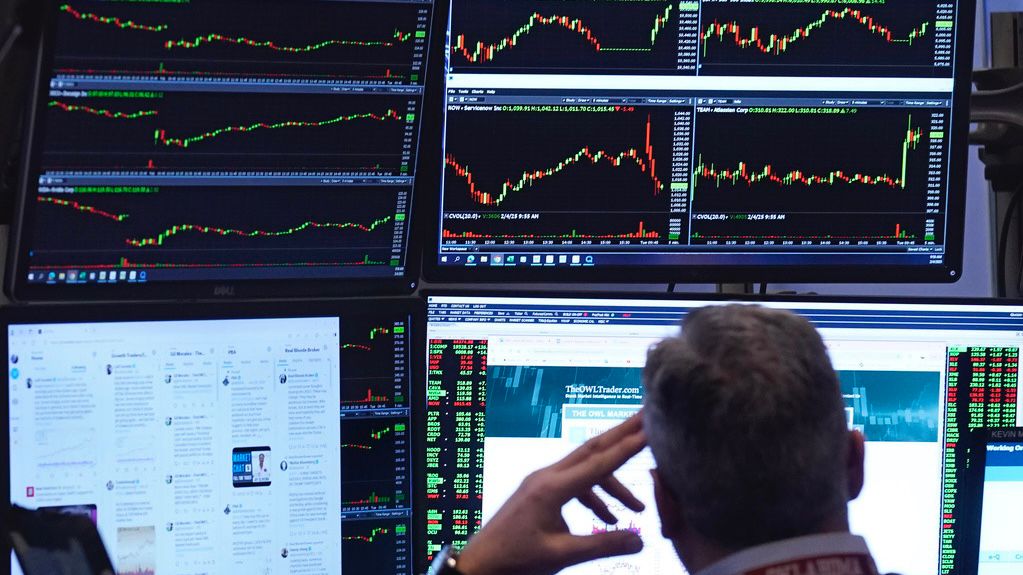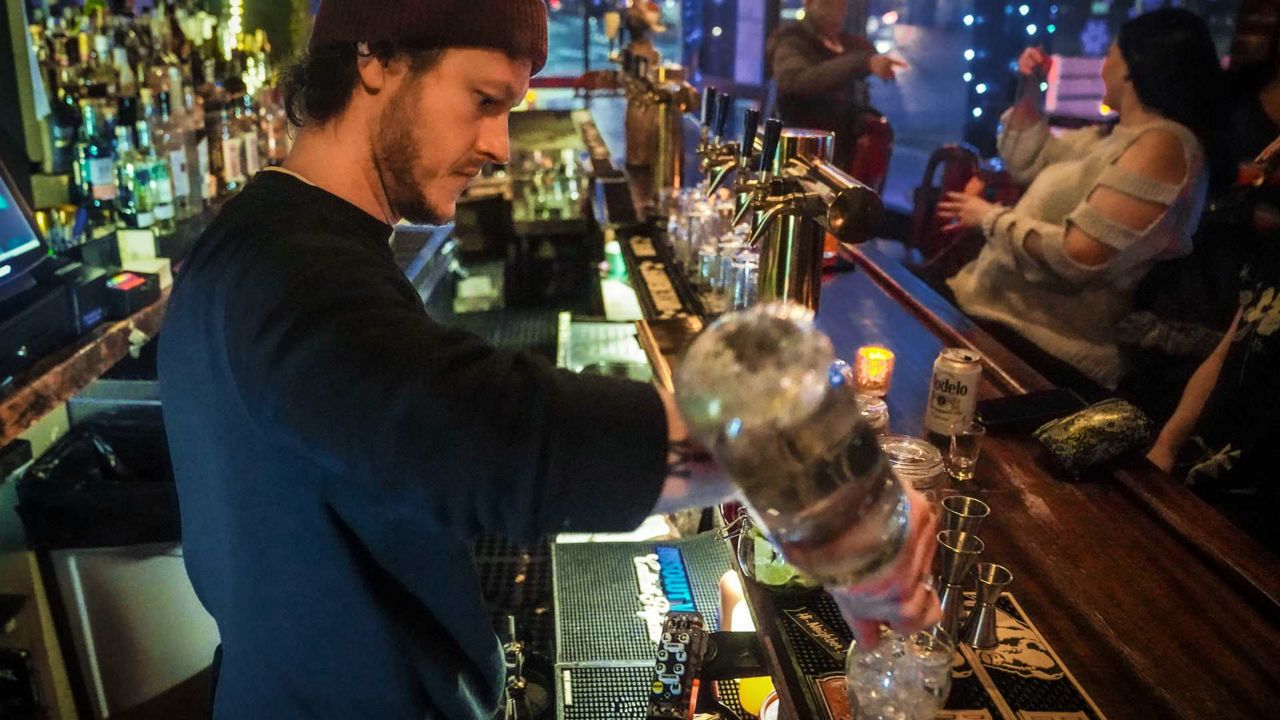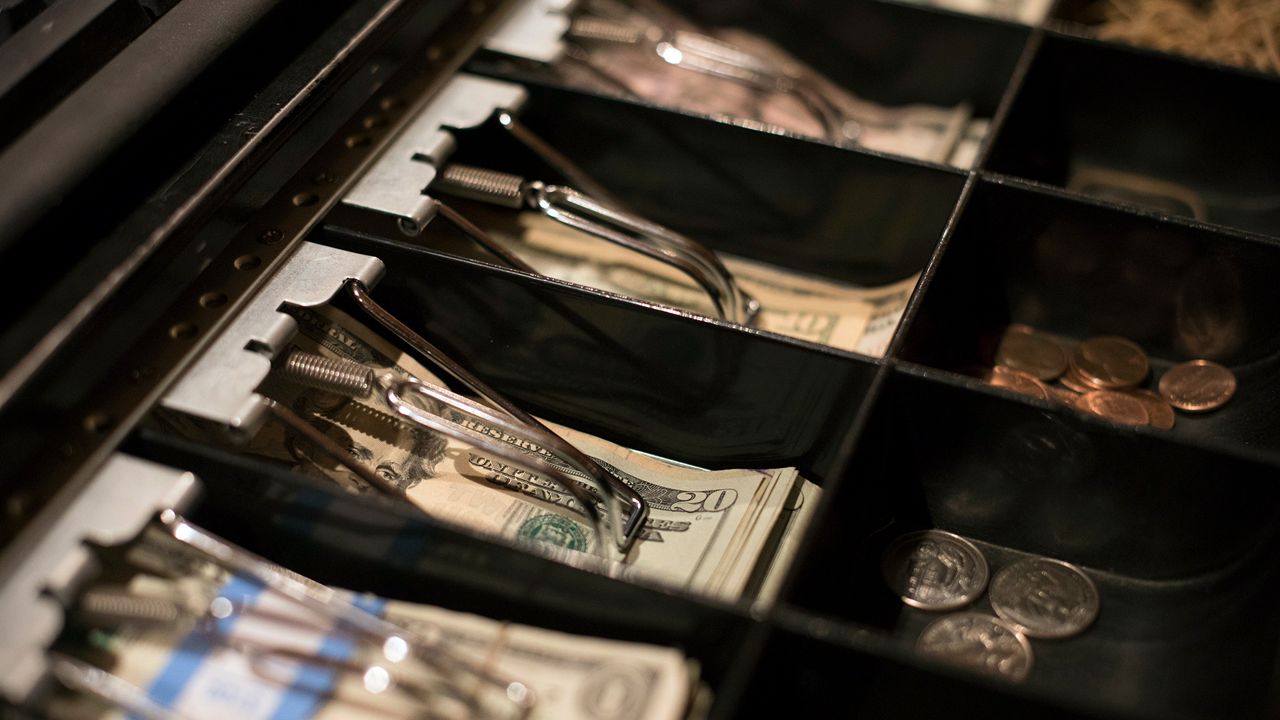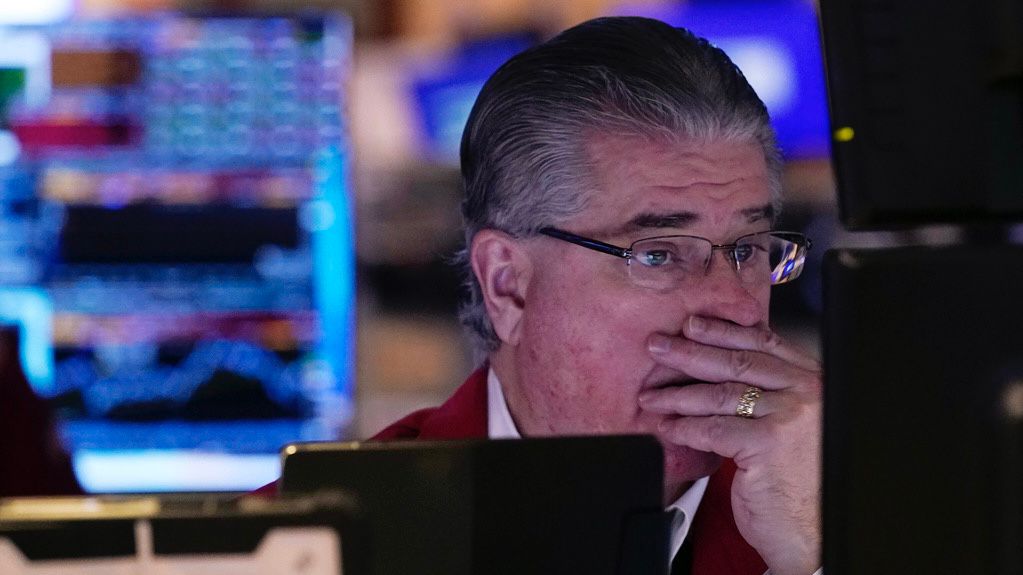The coronavirus has devastated the hotel industry.
At the peak of the pandemic, occupancy rates dropped below 10 percent.
It's projected this year will be the worst on record for an industry that was already dealing with a glut of rooms even before the outbreak shut down global travel.
The temporary closures have resulted in more than 70 percent of the hotel workforce nationally either losing their jobs or being furloughed. An estimated 7.5 million workers lost positions in April alone.
A new report from Oxford Economics and the American Hotel & Lodging Association finds New York has been particularly hard hit, with the state and local governments expected to lose a projected $1.3 billion in tax revenues from hotel occupancy - funds vital to the funding of city services.
Only California, at $1.9 billion, stands to lose more.
Florida, like New York, will lose an estimated $1.3 billion, while Nevada will lose an estimated $1.1 billion.
According to a published report from the Wall Street Journal, as many as 25,000 rooms, or 20% of New York's total, might never come back online as a result of the pandemic.
Hotelier and entrepreneur Ian Schrager of Studio 54 fame agrees.
"I think some hotels won't reopen," said Schrager in an exclusive interview. "I suppose those are the weak ones. Those are the ones that weren't capitalized correctly and weren't very successful in the first place."
His own hotel, the Times Square Edition, which opened a year ago with 452 rooms as a partnership with Marriott International and Maefield Development, has also been impacted, though not exclusively due to the coronavirus crisis.
Many hotels are dealing with financial issues and increased debt due to the virus. Prior to the virus, business was softening, with daily rates and revenue per room on the decline.
Schrager reveals he hopes his luxury Midtown property will be able to welcome guests back.
"I'm hopeful the Times Square Edition will reopen," Schrager said. "We got dragged into a dispute that doesn't concern us with other people. I am hopeful that will be resolved very soon."
It's not the only high profile property to face challenges.
Hilton has announced more than 2,000 layoffs, about 22% of its global workforce.
"With the impact to the travel sector nine times worse than 9/11, hotels need support to keep our doors open and retain employees as we work toward recovery," Chip Rogers, the CEO & President of the American Hotel and Lodging Association, said in a statement about the role the government must play in supporting the industry.
But there is light at the end of the tunnel.
As the city looks to Phase 2 reopening, some properties are springing back to life, including ones that stayed open through the pandemic.
Others like the swanky Mark Hotel on the Upper East Side started taking reservations again this week. The Millennium Times Square reopened on June 1, while the Hilton Midtown is scheduled to reopen July 22. The Loews Regency will open August 1.
Alastair Thomann, the C.E.O. of Generator and Freehand, the owner of hostels and hotels in cities such as New York, Los Angeles, and Chicago, tells NY1 he's bullish on an imminent rebound.
"There is huge demand for travel - people want to get back out there," Thomann. "Of course, they are a little bit more careful now. Of course we have to stick to social distancing, we have to be careful, but we can see there is a huge hunger to get back to normal."
Schrager agrees, saying while guests want to know they are safe, they also want to get out and enjoy themselves, and know what's open in the hotel and the neighborhood.
He is confident things will return not to a new normal, but to the normal we once knew.
"I think business will get back to normal," Schrager said. "It will be a thriving business again. New York will thrive it will just take some time."
The hotel icon believes there will be a sharp rebound in 2021, while Thomann is more in line with industry consensus that predicts a meaningful rebound not happening until 2022.









